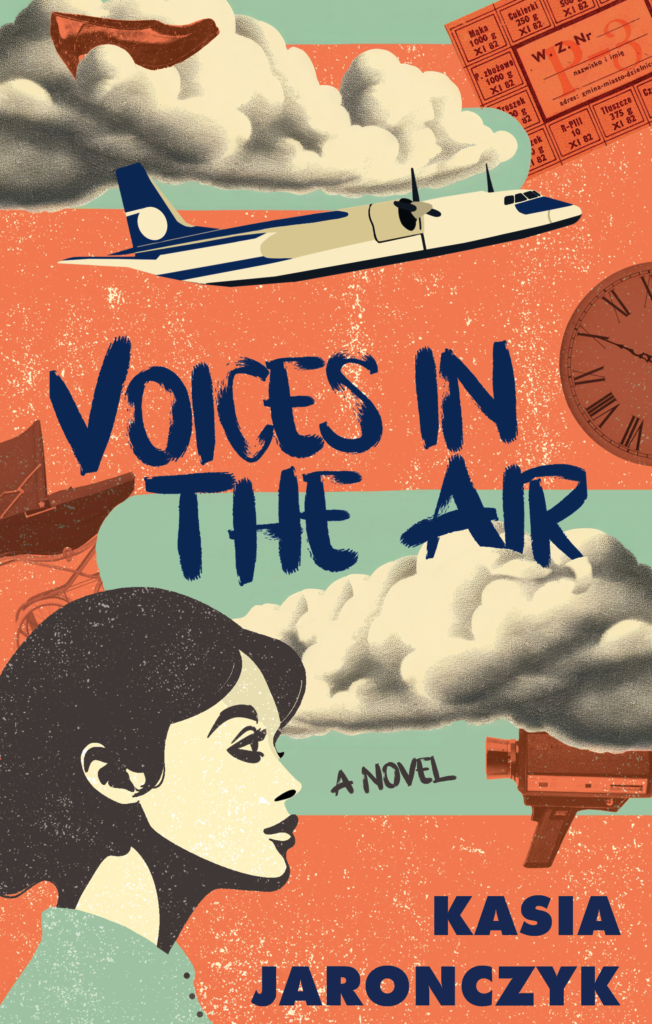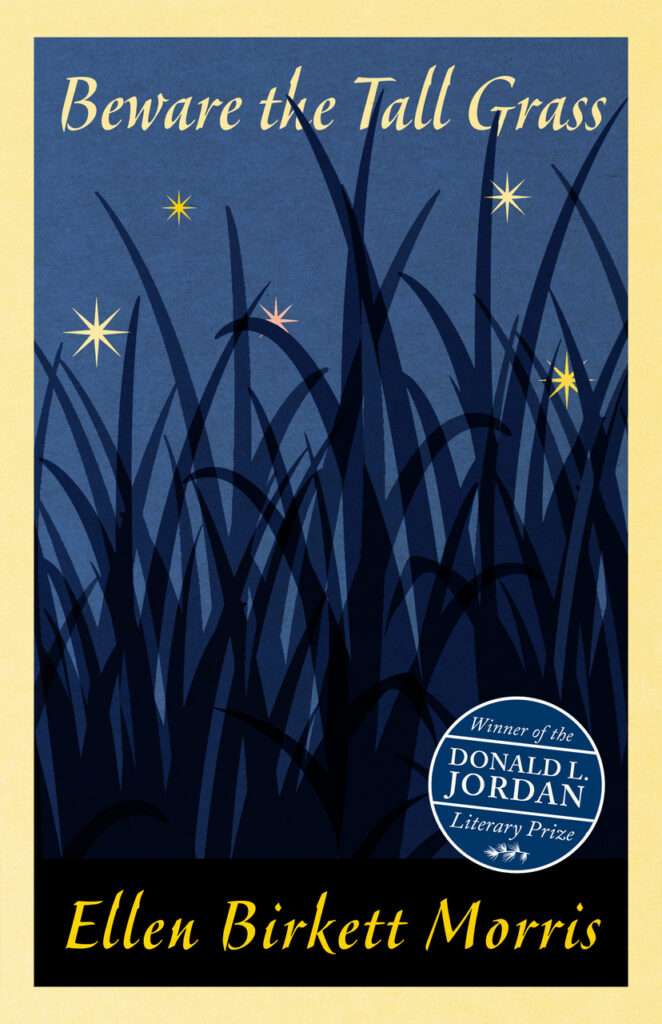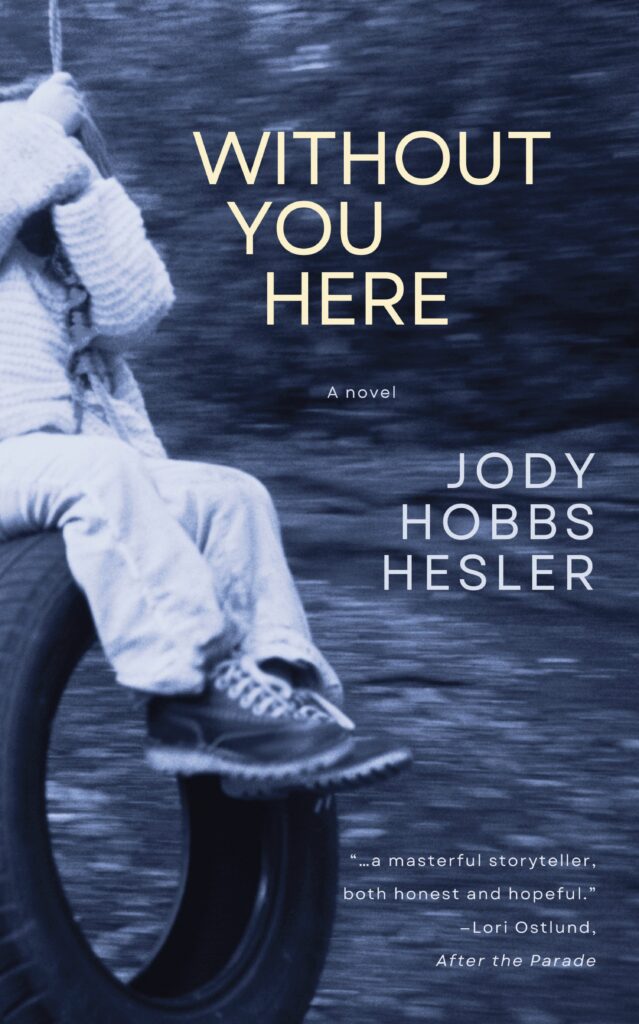reprinted with permission from www.workinprogressinprogress.com

Give us your elevator pitch: what’s your book about in 2-3 sentences?
On April 30, 1982, two women and their families hijack a Polish passenger plane flying from Breslau to Warsaw in a bold attempt to escape Martial Law in Communist Poland and find safety in West Berlin. Inspired by real events, Voices in the Air is told from the point of view of four women hijackers: a cotton spinner, whose husband wants to avoid a long prison sentence, a schoolteacher with a sick daughter, a pregnant fourteen-year-old who has visions of the Virgin Mary, an ambitious young filmmaker, and a stewardess in love with the married pilot. Will they find happiness beyond the Iron Curtain or was the hijacking not worth the risk?
Which character did you most enjoy creating? Why?
I had the most fun creating the character of Ania, the flight attendant. I immediately loved her irreverent, provocative voice, especially in her interactions with her inhibited and rural cousin, but underneath that bravado was a woman desperately in love with a married man and willing to do anything to be with him. After the hijacking I felt great sympathy for her stubborn belief, in spite of everyone, that her daughter will one day be able to respond to her and communicate.
And which character gave you the most trouble, and why?
I struggled with writing about Julia (the filmmaker) the most. I knew that she would be a witness to the hijacking, and that years later she would interview the women involved, but I didn’t know what her story would be. I felt that I already had all the perspectives I needed in the other female characters, until I realized that Julia would have a daughter Zuza who was, in a way, “hijacked” by her grandmother who acted like she was her mother. Julia would have to decide between Zuza and her chance to stay in the West. Julia’s story also required the most research, as the movie industry in Communist Poland was an involved process, complicated by the many levels of censorship involved. The themes of ambiguous morality, censorship and self-censorship became very important in the novel.
Tell us a bit about the highs and lows of your book’s road to publication.
Before I wrote Voices in the Air I had published a short story collection Lemons (Mansfield Press, 2017), edited an anthology of Polish-Canadian short stories, Polish(ed): Poland Rooted in Canadian Fiction (Guernica Editions, 2017), and wrote another novel, which remains unpublished. I spent a long time querying that first novel, and after receiving no offers, I gave up on it. In the meantime, I wrote Voices in the Air, and again, I had a few full requests from agents, but ultimately it was rejected. I was growing very frustrated and depressed because nobody seemed to want my novels. I switched gears and queried small presses in Canada and some in the US, which one can do without an agent, and with which I’ve had good luck before. I eventually received two offers of publication and accepted one. Palimpsest Press publishes great poetry and stylistically innovative novels, and Aimee Parent Dunn is an amazing editor. A big positive of publishing with a small press is that the author has more influence on the book design, cover and interior, which I appreciate very much.
What’s your favorite piece of writing advice?
Write first, edit later – the first draft is a bad draft. This lets you actually finish your work without letting the inner critic sabotage the process.
My favorite writing advice is “write until something surprises you.” What surprised you in the writing of this book?
Sometimes during writing your mind spontaneously comes up with an unexpected and yet perfect solution to a problem, or a connection, or something that happens that you know is just right. It is a magical moment and feels amazing. The creative process is hard work; you are consciously inventing characters or a plot, choosing between different possibilities, following different paths that might lead nowhere. And then, all of a sudden, you receive this surprising revelation like a gift from the writing gods.
How did you find the title of your book?
Titles can be so difficult – they need to indicate what the book is about, the tone of the work, the genre, but at the same time they can’t be too obvious, too obscure, or misleading. The choice becomes even more complicated when the novel in question is written about a different time and culture and the title needs to be more explanatory that it would have been if it were published in the same country and language. Certain phrases and words can have different connotations and be less obvious to a different audience.
I had a running list of titles, including Escape to the West; Flight over the Iron Curtain; Escape to Western Paradise; Hijacked to the West, but they all seemed too obvious and too general, plus they implied an action/adventure/thriller genre, which might attract readers who would be disappointed to find out it is a literary novel told from a female perspective.
I then came up with Women Hijackers, (which actually would have worked better in Polish, as a single word Hijackers in the feminine form), and finally, The Wives of Hijackers, which seemed an intriguing, sellable title, but perhaps a too gaudy. Air Partisans was too mysterious.
It was my writer friends who suggested Voices in the Air. I feel like this title indicates a literary novel, it may be too subtle, but it encompasses the female voices, the plot, the themes of the novel, as well as its unconventional structure which includes documentary film-style interviews with the hijackers. It also evokes a feeling of loss, an echo, and regret, which reflect the mood of the novel.
*****
READ MORE ABOUT THIS AUTHOR: https://kasiajaronczyk.weebly.com
READ MORE ABOUT THIS PUBLISHER: https://palimpsestpress.ca
ORDER A COPY OF THIS BOOK FOR YOUR OWN TBR STACK: https://palimpsestpress.ca/books/voices-in-the-air-kasia-jaronczyk/



